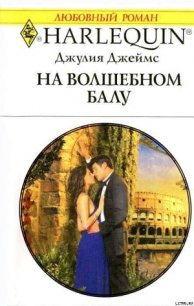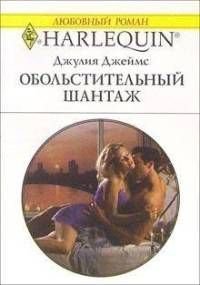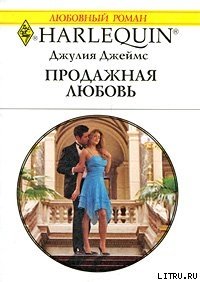Julia Ward Howe - Richards Laura E. (бесплатная регистрация книга TXT) 📗
The work speaks for itself. As it is little known to-day outside the schools for the blind, we quote the concluding paragraph:—
"In what is said, to-day, concerning the motherhood of the human race, the social and spiritual aspects of this great office are not wholly overlooked. It must be remembered that there is also a fatherhood of human society, a vigilance and forethought of benevolence recognized in the individuals who devote their best energies to the interests of mankind. The man to whose memory the preceding pages are dedicated is one of those who have best filled this relation to their race. Watchful of its necessities, merciful to its shortcomings, careful of its dignity, and cognizant of its capacity, may the results of his labor be handed down to future generations, and may his name and example be held in loving and lasting remembrance."
CHAPTER XVII
THE WOMAN'S CAUSE
1868-1910
Women who weave in hope the daily web,
Who leave the deadly depths of passion pure,
Who hold the stormy powers of will attent,
As Heaven directs, to act, or to endure;
No multitude strews branches in their way,
Not in their praise the loud arena strives;
Still as a flameless incense rises up
The costly patience of their offered lives.
J. W. H.
We have seen that after the Doctor's death our mother felt that another chapter of life had begun for her. It was a changed world without that great and dominant personality. She missed the strength on which she had leaned for so many years, the weakness which through the past months she had tended and cherished. Henceforth she must lead, not follow; must be captain instead of mate.
In another sense, the new life had actually begun for her some years before, when she first took up public activities; to those activities she now turned the more ardently for the great void that was left in heart and home. We must now go back to the later sixties, and speak of her special interests at that time.
Looking back over her long life, we see her in three aspects, those of the student, the artist, the reformer. First came youth, with its ardent study; then maturity, with its output of poems, plays, essays. So far she had followed the natural course of creative minds, which must absorb and assimilate in order that they may give out. It is in the third phase that we find the aspect of her later life, a clear vision of the needs of humanity, and a profound hospitality which made it imperative for her to give with both hands not only what she had inherited, but what she had earned. Having enjoyed unusual advantages herself, the moment she saw the way to give other women these advantages, she was eager to "help the woman-standard new unfurled."
In the first number of the "Woman's Journal," of which she was one of the founders and first editors, she writes (January 8, 1870):—
"We who stand beside the cradle of this enterprise are not young in years. Our children are speedily preparing to take our place in the ranks of society. Some of us have been looking thoughtfully toward the final summons, not because of ill health or infirmity, but because, after the establishment of our families, no great object intervened between ourselves and that last consummation. But these young undertakings detain us in life. While they need so much care and counsel, we cannot consent to death. And this first year, at least, of our Journal, we are determined to live through."
Again she writes of this new departure:—
"In an unexpected hour a new light came to me, showing me a world of thought and character. The new domain was that of true womanhood, woman no longer in her ancillary relation to man, but in direct relation to the divine plan and purpose, as a free agent fully sharing with man every human right and every human responsibility. This discovery was like the addition of a new continent to the map of the world. It did not come all at once. In my philosophizing I at length reached the conclusion that woman must be the moral and spiritual equivalent of man. How otherwise could she be entrusted with the awful and inevitable responsibilities of maternity? The Civil War came to an end, leaving the slave not only emancipated but endowed with the full dignity of citizenship. The women of the North had greatly helped to open the door which admitted him to freedom and its safeguard, the ballot. Was the door to be shut in their face?"
When this new world of thought, this new continent of sympathy was opened to her, she was nearly fifty years old. "Oh! had I earlier known," she exclaims, "the power, the nobility, the intelligence which lie within the range of true womanhood, I had surely lived more wisely and to better purpose."
Speaking of this new interest in her life, her old friend Tom Appleton (who had not the least sympathy with it) once said, "Your mother's great importance to this cause is that she forms a bridge between the world of society and the world of reform."
She soon found that she was not alone in her questioning; similar thoughts to hers were germinating in the minds of many women. In our own and other countries a host of earnest souls were awake, pressing eagerly forward. In quick succession came the women's clubs and colleges, the renewed demand for woman suffrage, the Association for the Advancement of Women, the banding together of women ministers. The hour had come, and the women. In all these varying manifestations of one great forward and upward movement in America, Julia Ward Howe was pars magna. Indeed, the story of the latter half of her life is the story of the Advance of Woman and the part she played in it.
The various phases may be taken in order. Oberlin, the first coeducational college, was chartered in 1834. Vassar, the first college for women only, was chartered in 1861, opened in 1865. Smith and Wellesley followed in 1875. Considering this brave showing, it is strange to recall the great fight before the barred doors of the great universities. The women knocked, gently at first, then strongly: our mother, Mrs. Agassiz, and the rest. They were greeted by a storm of protest. Learned books were written, brilliant lectures delivered, to prove that a college education was ruinous to the health of women, perilous to that of future generations. The friends of Higher Education replied in words no less ardent. Blast and counterblast rang forth. Still the patient hands knocked, the earnest voices called: till at length—there being friends as well as foes inside—slowly, with much creaking and many forebodings, the great doors opened; a crack, then a space, till to-day they swing wide, and the Higher Education of Women now stands firm as the Pyramids.
The idea of woman suffrage had long been repugnant to our mother. The demand for it seemed unreasonable; she was inclined to laugh both at the cause and its advocates; yet when, in November, 1868, Colonel Thomas Wentworth Higginson asked her to give her name to a call for a meeting in behalf of woman suffrage she did not refuse. It would be "a liberal and friendly meeting," the Colonel said, "without bitterness or extravagance."
On the day of the meeting she "strayed into Horticultural Hall" in her "rainy-day suit, with no idea of taking any active part in the proceedings." Indeed, she had hoped to remain unnoticed, until summoned by an urgent message to join those who sat upon the platform; reluctantly she obeyed the summons. With this simple action the old order changed for her. On the platform were gathered the woman suffrage leaders, some of whom she already knew: William Lloyd Garrison, Wendell Phillips, Thomas Wentworth Higginson, James Freeman Clarke; veteran captains of Reform, her husband's old companions-in-arms. Looking in their steadfast faces, she felt that she belonged with them; that she must help to draw the car of progress, not drag like a brake on its wheel.




